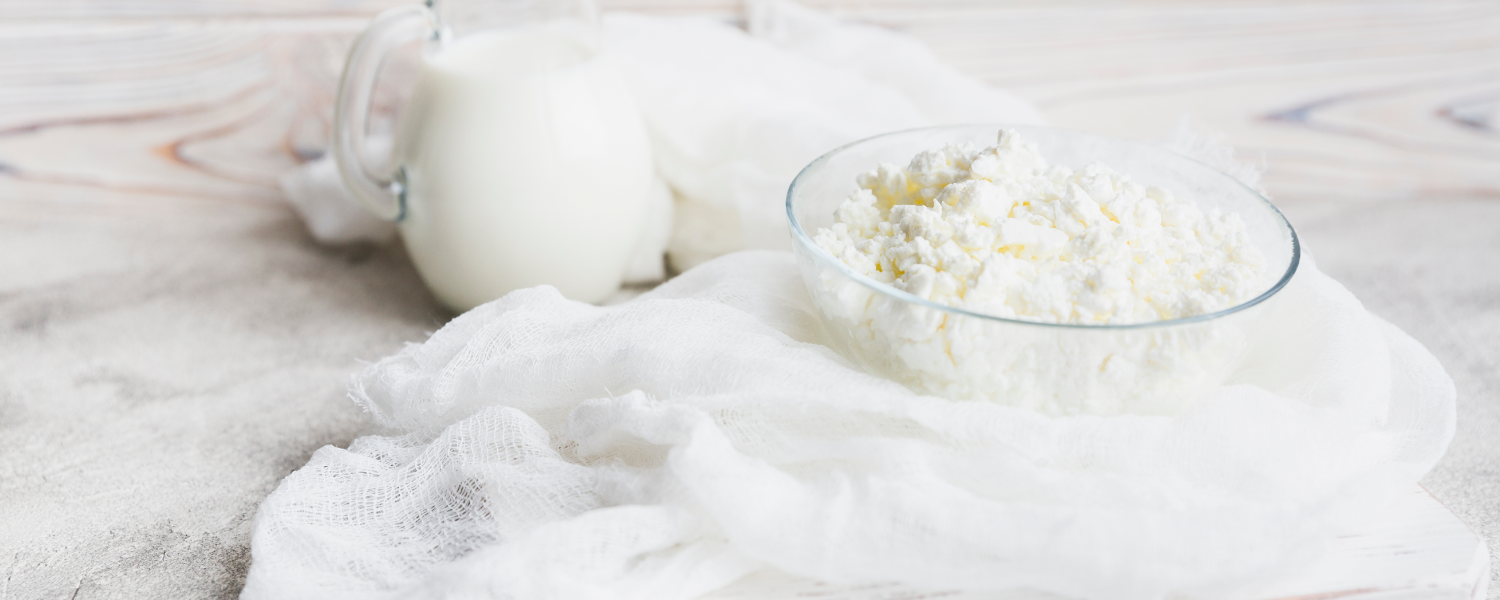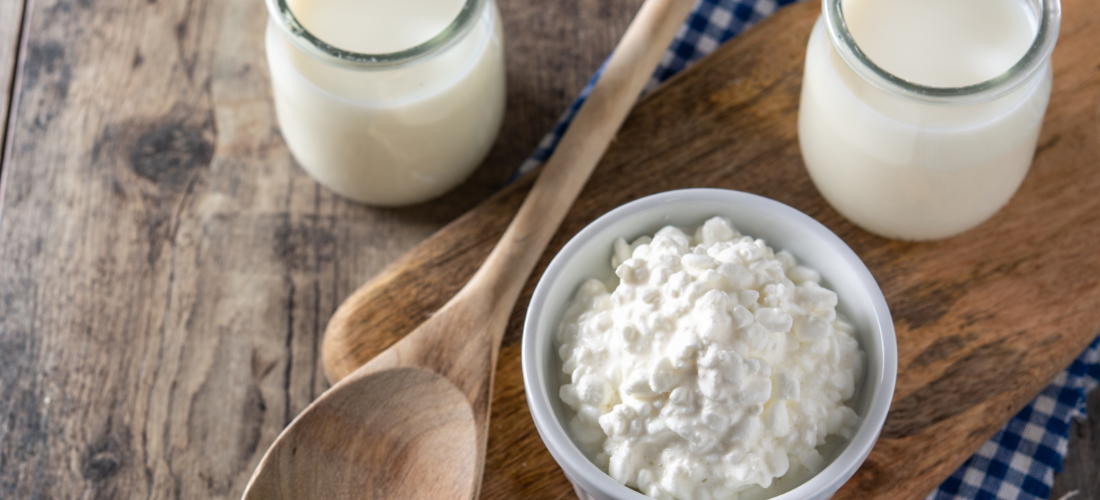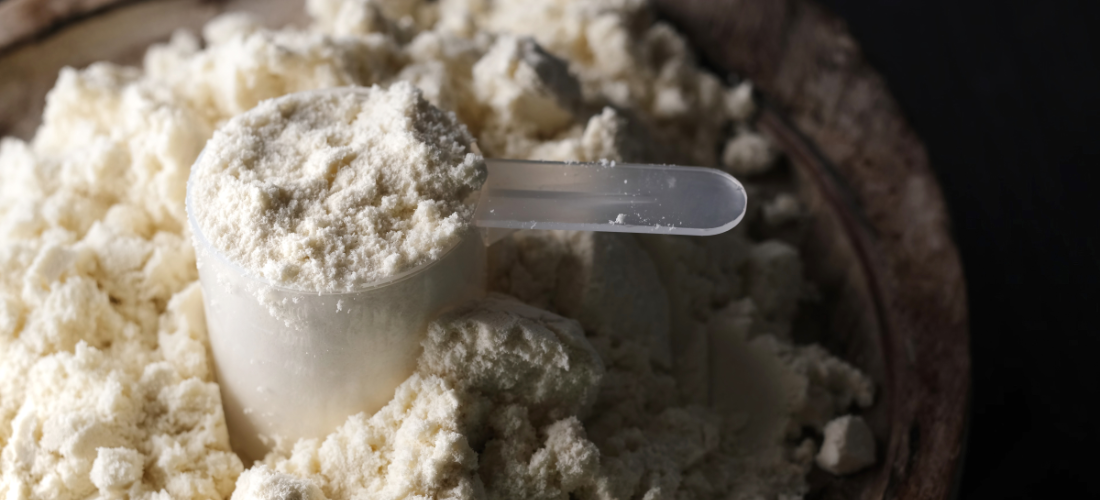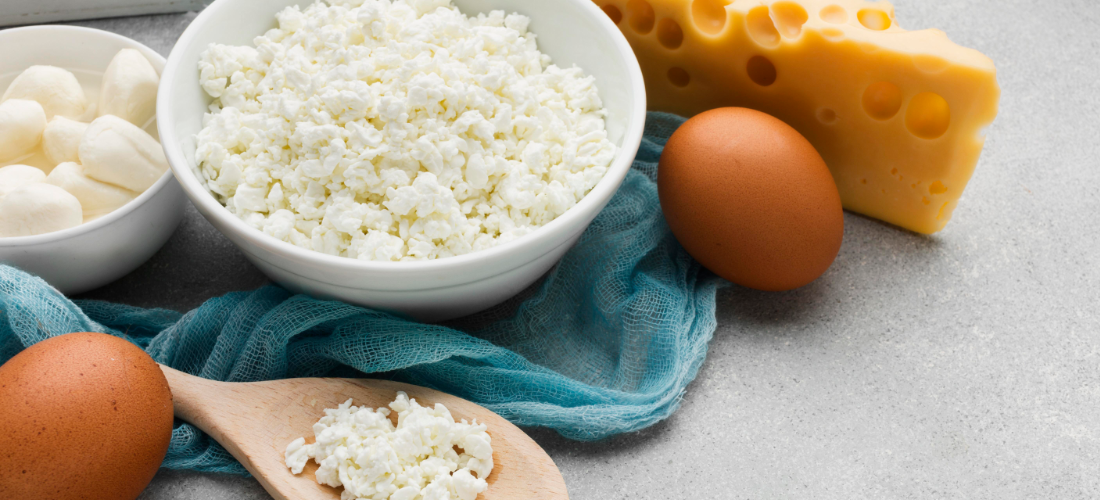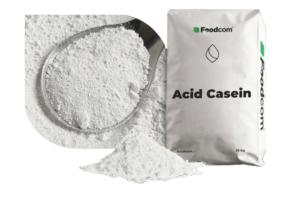Casein is one of the most important proteins in milk, playing a significant role in both the food industry and sports supplementation. It is valued for its nutritional and functional properties and its ability to create a variety of high-protein products. In this article, we will discuss the types of casein, how it is obtained, its properties, and its uses.
Casein in industry – from tradition to innovation
Many people wonder what rennet casein is. Although it has been known for hundreds of years as a basic ingredient in cheese and dairy products, today its role goes far beyond traditional applications. Advances in nutrition and protein processing technology have made casein a raw material used not only in the food industry, but also in cosmetics, pharmaceuticals, and technical industries.
It is used in the production of bioplastics, eco-friendly adhesives, and even protective coatings in food packaging. Its natural origin, ability to form stable structures, and high biocompatibility make it one of the most promising ingredients of the future. This is an example of how traditional milk protein is gaining a new lease on life in the modern world of innovation.
Types of casein
There are several basic types of casein, which differ in their processing methods and functional properties. The two most popular are rennet casein and micellar casein.
Rennet casein is produced by coagulating milk with the enzyme rennet. This is a process in which milk is separated into curds and whey. This produces a protein with a compact structure that is ideal for use in the cheese and bakery industries and in the production of protein supplements.
Micellar casein, on the other hand, is a form of casein obtained physically, without the use of enzymes. In the production process, the protein is gently separated from the milk, creating a micellar structure that retains all its natural nutritional properties. This type of casein is characterized by a slow digestion rate, which makes it ideal for use in protein supplements consumed before bedtime or during longer breaks between meals.
Properties of casein
Casein is a protein with high nutritional value. It contains all the essential amino acids, which makes it a complete source of protein. Compared to whey proteins, casein digests more slowly, providing the body with amino acids over a longer period of time. This is particularly important in building muscle mass, post-workout recovery, and in food products designed for gradual energy release.
Casein also has functional properties in the food industry. It is excellent for creating gels and emulsions, stabilizing dairy products, and increasing the viscosity of sauces and protein drinks. Its coagulation ability is used in cheese production, both in large factories and smaller cheese dairies.
How is rennet casein produced?
The production process of rennet casein begins with the pasteurization of milk, which is then treated with rennet. The enzyme causes the curd to separate from the whey. The curd is pressed, purified, and dried to form a powdered product. Rennet casein has a high gel-forming and emulsion-stabilizing capacity, making it indispensable in many food products and dietary supplements.
In the case of micellar casein, the process is more delicate. The protein is extracted from milk using physical methods and microfiltration, which preserves its natural micelle structure. Such a product is more easily digestible and less prone to denaturation, thus retaining all its nutritional properties.
Applications of casein
Casein is used in various industries, both in the food industry and in sports supplementation. Rennet casein is mainly used in the production of mature cheeses, cottage cheese, sauces, and protein drinks. Due to its ability to form gels and stabilize emulsions, it is also suitable for use in baking and in the production of high-protein products.
Micellar casein, thanks to its slow digestion, is ideal for protein supplements, especially those consumed before bedtime. The slow release of amino acids supports muscle regeneration and helps maintain muscle mass during the nighttime break from food. Casein is also used in functional products, such as protein bars, protein-enriched drinks, and supplements for the elderly or convalescents.
Casein wholesale and the FDCM platform
For companies looking for casein in larger quantities, purchasing casein wholesale is a good option. The FDCM platform facilitates access to high-quality protein products, enabling efficient ordering and logistics for business customers.
Such a purchase is not only financially beneficial, but also ensures continuity of production in processing plants and supplement companies. Wholesale quantities of casein are available in various forms, allowing the product to be tailored to the specific application.
Casein – an important ingredient in modern production
Casein is a protein with extremely versatile applications. Thanks to its nutritional, functional, and technological-processing properties, it is used in food production, sports supplementation, and the health and wellness industry. Rennet casein and micellar casein differ in how they are obtained and in their functionality, but both types offer high nutritional value and practical applications.
The possibility of purchasing casein in bulk allows companies to easily obtain the product in quantities that meet their production needs. Casein remains not only the foundation of many food products, but also an irreplaceable ingredient that supports health and regeneration of the body.


